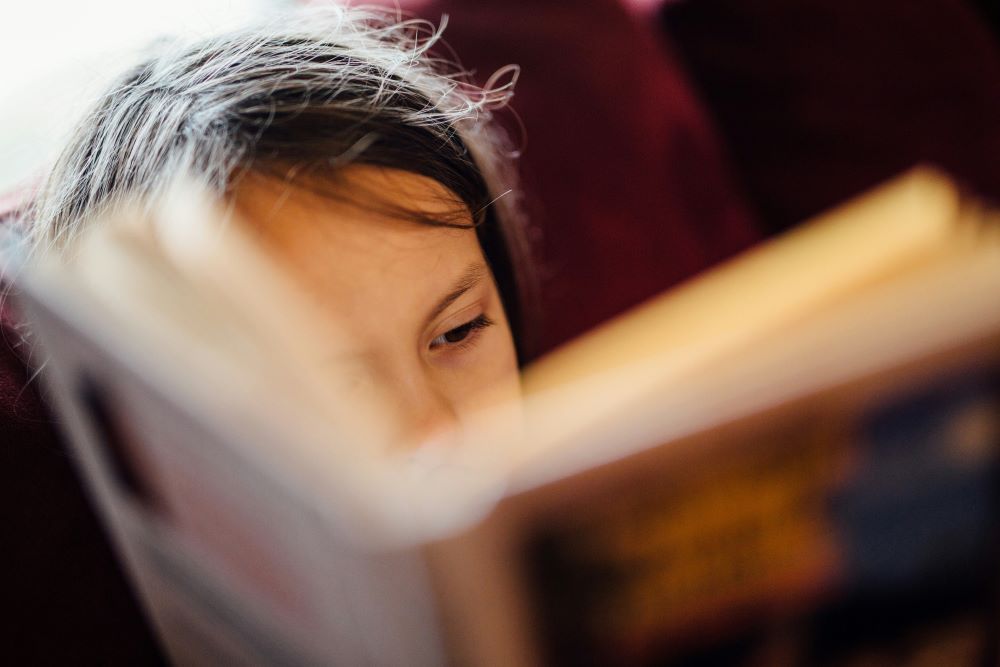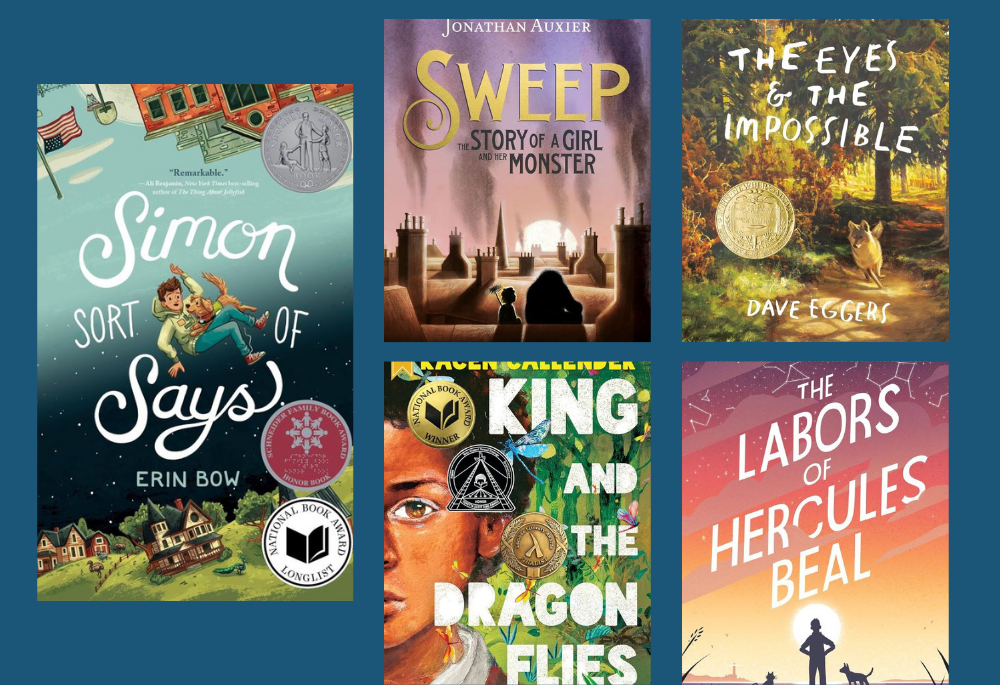
(Unsplash/Johnny McClung)
I remember the day our 9-year-old brought Twilight home from the library. The novel, a blood-soaked vampire romance thriller, is a fun read and a real page-turner if you like that sort of thing. However, our kids' reading choices generally tended toward talking animals, wildlife explorations, mythological adventures and wizarding schools.
"Twilight might be scary," I warned.
"I don't like scary books," my daughter admitted.
"And there’s probably blood," I added. "Because vampires."
"My friends are reading it," she said uncertainly. "But I don't like vampires."
I sensed the tide turning my way. "It's up to you."
She skipped Twilight and stuck with the Penderwicks, The Unicorn Chronicles, a stack of Magic Tree House titles and piles of well-loved picture books. I breathed a sigh of relief because, while I gladly recommend Twilight as a guilty pleasure for mature readers, I was not looking forward to a discussion about teenage vampire dating rituals and toxic relationships with a 9-year-old.
Happily, many of the best books for young readers available today — including those which some critics would ban — are inspiring, faith-filled and even Catholic in shape, tone, theme and outlook. Just as importantly, they are really good reads.
"Writers for kiddos have another responsibility, and it's a big one. We are responsible for telling the truth. … Because how else do we learn to live with the world’s brokenness?"
—Gary Schmidt
"A middle grade novel is an arc of healing," author Kacen Callender — whose National Book Award winning novel King and the Dragon Flies wrestles with grief, love, family, friendship and racism in the south — recently told me.
Because the book explores questions of sexuality, King and the Dragon Flies is a regular target for critics who would have the title removed from schools and libraries. In the meantime, the book's protagonist, Kingston Reginald James — aka King James (literally an embodiment of the word of God) — struggles to save a friend while remaining a good son who wants to be worthy of his father's love. Fans of the Gospels can enjoy the parallels.
Following Flannery O'Connor's advice that violence is strangely capable of preparing characters to accept their moment of grace, Erin Bow's recent novel, Simon Sort of Says, follows seventh-grader Simon O'Keeffe, who is the only survivor of a horrific school shooting. The book, which received a 2023 Newbery Honor, is heartwarming, heartbreaking and, it must be said, hilarious.
In Simon Sort of Says, the O'Keeffe family moves to tiny Grin and Bear It, Nebraska, where Simon's mortician mom takes over the local funeral home and his dad serves as the permanent deacon for St. Barbara's Catholic Church, where a squirrel accidentally gains access to the Eucharist — leading to calls from the chancery when the local bishop gets word that Deacon O'Keeffe now refers to the animal as "the Jesus squirrel."

(NCR)
"We must acknowledge that the great 2,000-year weight and history of the church contain great potential for comedy," Bow, who grew up in Omaha where she attended Mercy High School and Creighton University, told me in a recent interview.
In the midst of recovery, tragedy and grief, Simon Sort of Says is propelled by middle school hijinks, authentic space alien research, kids who are comfortable with their own differences, some of the funniest Catholic Church scenes that have ever appeared in print — and even a shout-out to the National Catholic Reporter.
"This was my chance to dump all my Catholic stuff out on the page and have fun with it," said Bow. "I was also really interested in ways that church intersects with small town life."
In all her writing, which includes poetry, science fiction and fantasy, as well as realistic contemporary stories for young readers, Bow explores questions about aftermaths, faith and finding your place in the world. "That's why Simon Sort of Says is not really a story about a school shooting," she said. "It's a story about healing."
"When a story for kids is completely black and bleak and awful, that seems to me a disservice," says writer Gary Schmidt, whose work has earned Newbery, Printz and National Book awards and honors. "If it's twisted, that seems to me a disservice. If it's all happy-go-lucky pink pony goes to puppy-dog-land, that too seems a disservice."
In Schmidt's most recent novel, The Labors of Hercules Beal, a middle schooler must recreate a Greek hero's mythological feats in real life. Like Schmidt's earlier works, The Labors of Hercules Beal is filled with adventure, history, humor and friendship, along with serious reflections about grief, God, beauty and the joy of having a great dog to greet you at the end of a hard day.
"I am responsible for telling a good story," Schmidt told me in a personal interview. "But writers for kiddos have another responsibility, and it's a big one. We are responsible for telling the truth. For not lying to them. Because how else do we learn to live with the world's brokenness? And the sorrow we feel over it? Denying it, obviously, is ridiculous. Ignoring it is worse. Rather, we can say, this is the way the world is. What strength can I bring to it? What grace can I be supported by? What grace can I use to support others?"
Johannes, the wild dog protagonist of Dave Eggers' 2023 Newberry Award winning novel The Eyes and the Impossible sums this up beautifully: "Every reasonable creature knows that the worst thing any creature can do all day is think of themselves. If there are troubles in your mind, you should think first of the troubles of others; it is the essence of liberation. That is, freedom begins the moment we forget ourselves."
Advertisement
Or as Jonathan Auxier writes even more simply in Sweep: The Story of a Girl and Her Monster, "That's how it works, doesn't it? We are saved by saving others."
Perhaps Pope Francis says it most succinctly of all: "No one is saved alone."
"No kid wants to read a sermon," Schmidt cautions. "Actually, most adults don't want to read a sermon. We want good stories that keep us turning the pages, but we also want to ask the hardest question, which is, 'How do we move on to the next thing when there is pain and loss?' To me, that seems a deeply religious question. And we can't promise that things are going to be easy or that there isn't danger ahead. But we can give kids hope that maybe it can be OK for now."
In the best books for kids, there is also the possibility that maybe it will be OK tomorrow, too.






